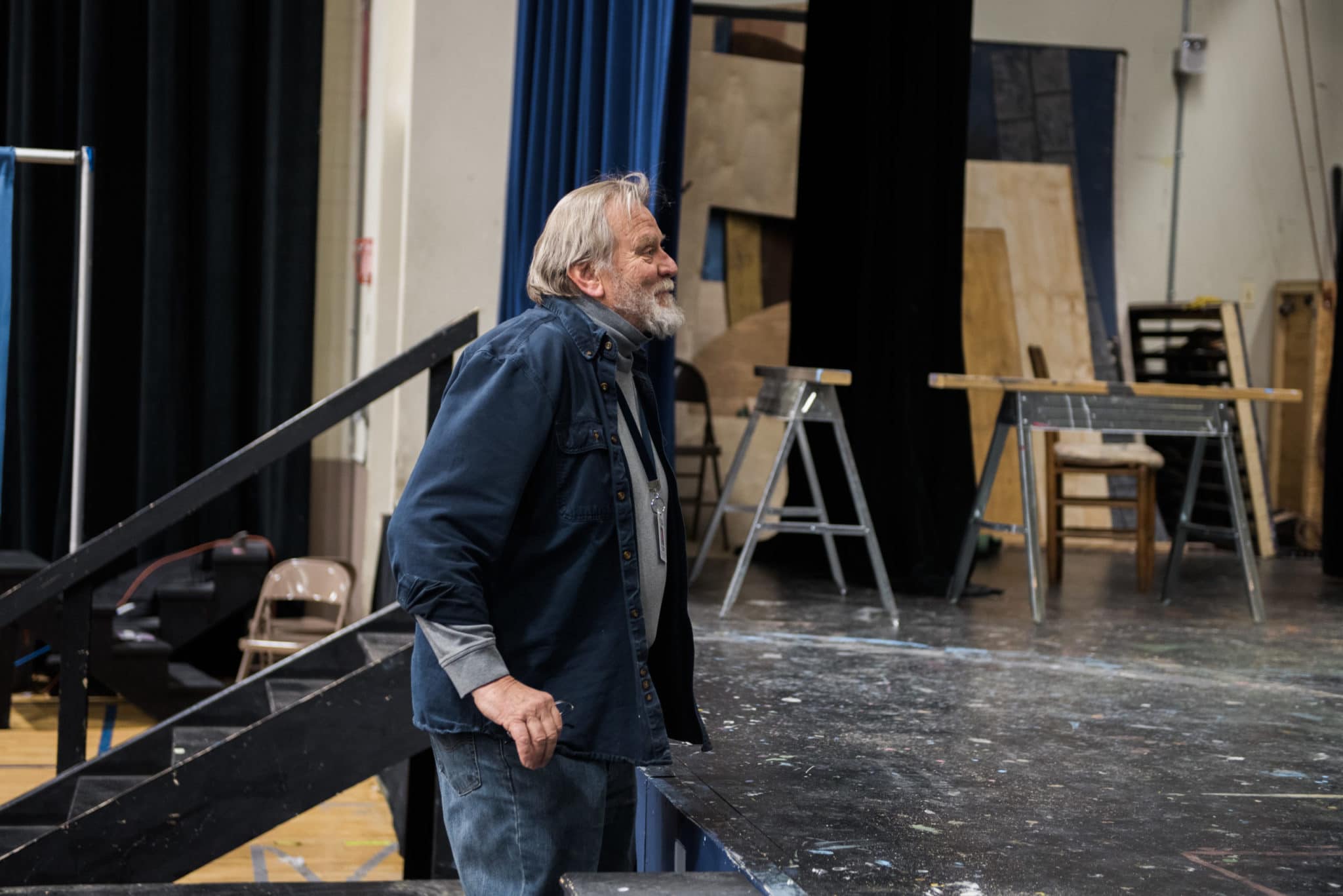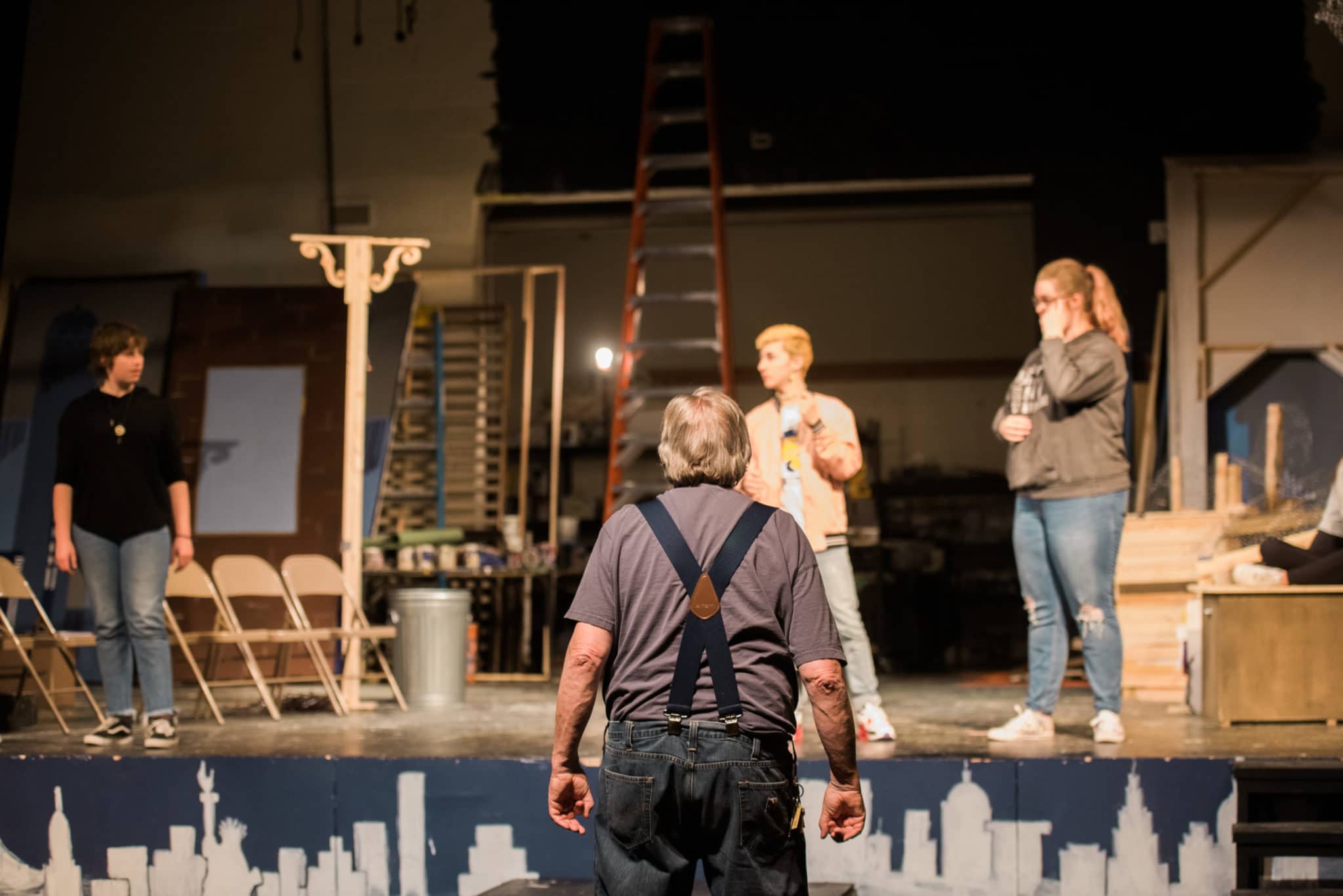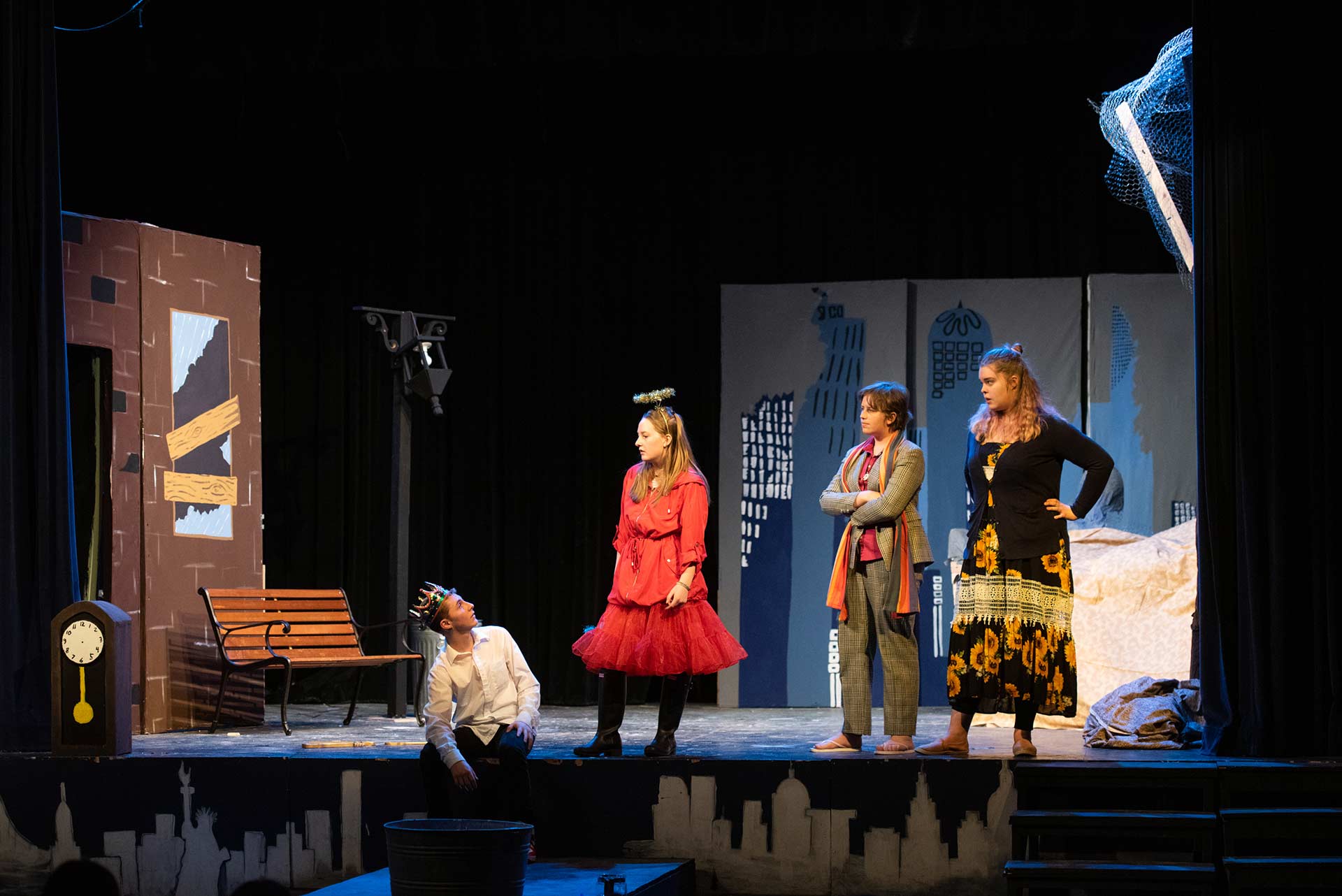
When students at The Denver Waldorf School are asked what they love about their education, they often comment that they treasure close relationships with teachers. DWS students are full of gratitude to be surrounded by caring, dedicated and inspiring teachers.
Our Teacher Spotlight series highlights a teacher each month, and this month, let’s get to know David Johnson. David has been a shining light in our community for almost 20 years and has decided to retire at the end of this school year. What an understatement it is to say that we wish him well and that he will be dearly missed.
What grades and subjects do you teach?
I teach high school drama, both technical work (sets and lighting) and direction. I assist and teach the lower grades for the technical aspects of their plays.
What is your educational background?
I have a BA in Theatre and Radio/Television from Ashland College (now Ashland University) in Ashland, Ohio.
What were the next stops on your journey prior to coming to The Denver Waldorf School?
I spent 15 years working in summer stock theatre, regional theatre, Broadway and Off-Broadway scene shops and theatres. I did regional tours throughout Michigan and New York state. I toured around the world with New York-based dance companies. I spent 14 years working for an educational foundation in upstate New York. I spent 10 years working on Rudolf Steiner’s Mystery Dramas in Spring Valley, New York. I also started a small theatre group with parents and alumni at the Green Meadow Waldorf School.
How many years have you taught at The Denver Waldorf School?
I started teaching at the beginning of the 2002-03 school year.
What drew you to the Waldorf curriculum?
I am a lifer. I attended the Rudolf Steiner School in New York for 7th- 9th grades, High Mowing School in Wilton, New Hampshire for 10th grade, and Die Freie Waldorf Schule in Stuttgart, Germany for 11th and 12th Grades. My three children attended the Green Meadow Waldorf School.
What is your teaching philosophy and approach?
My philosophy of teaching drama in high school is to give the students an exposure to another form of art. All art forms that are in a Waldorf school curriculum engage the imagination and allow a student to express her or himself. In the fine arts, such as clay, painting, woodwork, copper work, etc. the hand is engaged, working in coordination with the eye. This hand/eye coordination coupled with the imagination is vital. In drama, the whole body is in use. The limbs are moving, the ear is listening, the lungs and jaw are speaking. The soul is interacting with the characters and with the story that is being told. In drama, not only does the student have to be one with the character, but with all the other characters on stage at the same time, and also the ones waiting in the wings. This helps the student grow into themselves as they witness what a playwright wishes to express and to grow in relation with the rest of the world.
The Waldorf philosophy of education focuses on the whole child. What does this mean to you?
Just what the statement says: the WHOLE child. Of course, we have to define the whole child. The child is an incarnated being that brings to the world strengths and weaknesses that need to be encouraged and supported as they grow to be whole adults. The Waldorf curriculum is built around the progressive inner development that a child experiences, starting in early childhood and running through 12th grade in high school. The education should be diverse and complete enough that the student will leave school with the fundamental inner and outer tools, ready to enter the greater world to explore and do what ever she or he wants to pursue, in freedom. The education is not just college prep, nor is it just a basic ABCs education. It should educate the thinking, feeling, and willing, i. e. the WHOLE child, in equal parts, delivered at the appropriate times.
What makes The Denver Waldorf School unique?
Traditionally, the main lesson is taught with one and a half to two hours devoted to a subject for three to four weeks. After the time is up, teachers and students move on to a new subject. The moving away from a subject, even for a full year, allows the subject to rest and “live” within the child’s thinking. This is where ideas can live deep in the child, forming concepts that can then be perceived later. It is not unlike breathing. This is how most American Waldorf schools do this. DWS does this also with afternoon track classes, what other Waldorf schools call skills classes. The students are allowed to breath in the art classes and then they are “let go” and given the opportunity to grow within the students.
DWS is collecting comments about the the impact of David’s teaching career – if you have a thought or a story to share, please email communicate@denverwaldorf.org.
Many heartfelt thanks to David for his dedication to the growth of our students.


